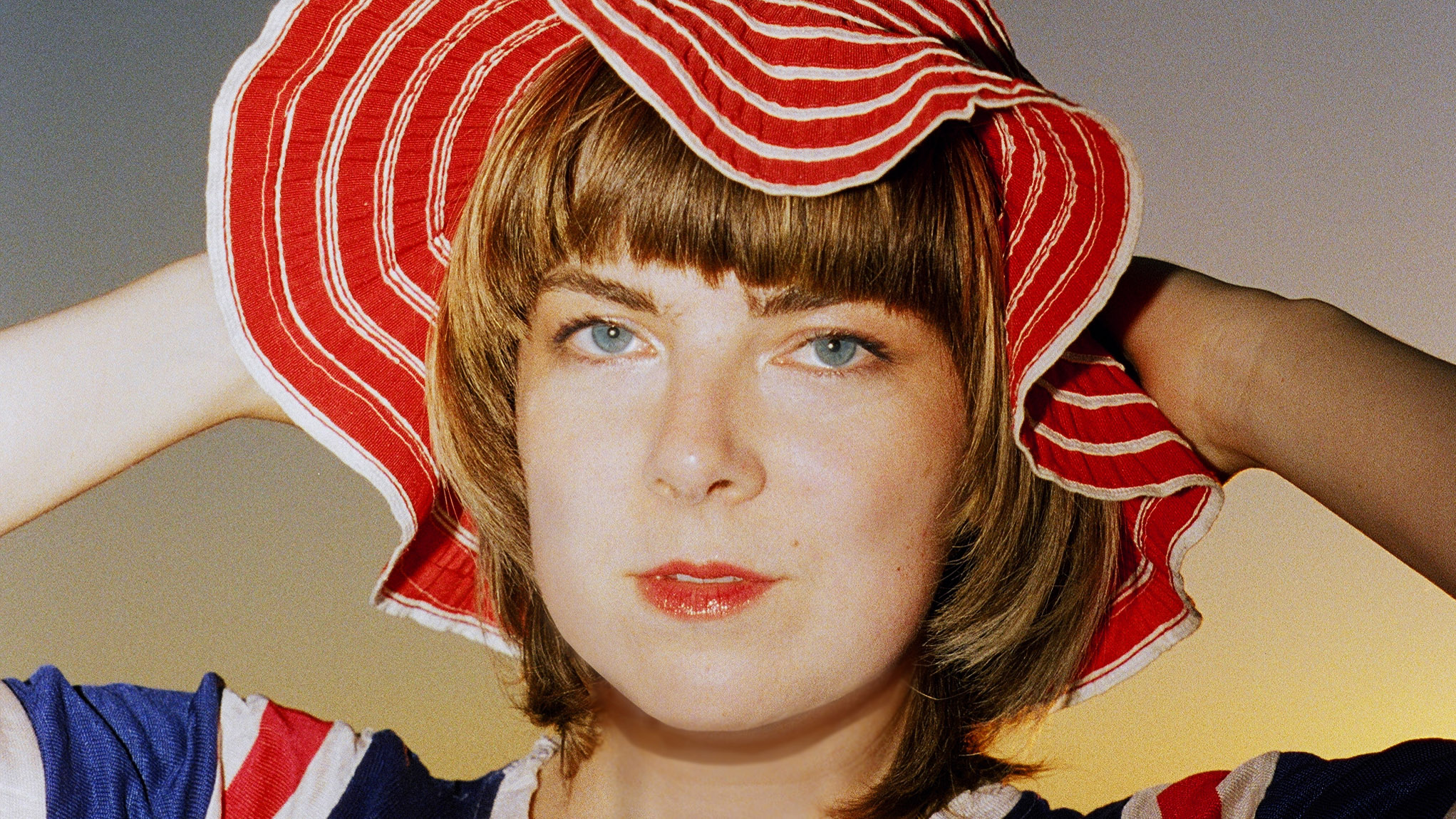BACKSTORY: Caila Thompson-Hannant embraced both the eclectic experimentalism of her local arts community and the big-tent pop of her ’90s upbringing
FROM: Born and raised in Vancouver; has lived in Montreal for ten years
YOU MIGHT KNOW HER FROM: Her 2014 debut album Being
NOW: Preparing to tour and release her new album Field of Love; writing new songs; starting new collaborations
Mozart’s Sister is done living in the shadows. The name Caila Thompson-Hannant chose for her dance-pop project is oddly fitting: just like the real-life Maria Anna Mozart, she at first found her life’s purpose contributing to something separate from, but close to, herself. Maria was an early influence on her beloved brother, Wolfgang Amadeus Mozart; Thompson-Hannant played bass, keyboards, and sang in the bands Think About Life and Shapes and Sizes before deciding she needed to strike out alone. “I started a solo project so that I could really understand firsthand every aspect of songwriting and producing,” she says.
Fast forward six years, and Thompson-Hannant’s newest album, Field of Love, finds her ready to escape from the periphery on her own merits, an accomplishment her namesake never quite achieved. “I let go of a lot of anxiety about making music,” she explains. As she tells it, her newfound self-assurance stemmed directly from imposing neither rules nor boundaries. “I didn’t have a plan for presenting [Field of Love] to the world,” she says. “It felt like a new chapter, and it felt very fresh, like I was doing it for myself.”
Rather than vying for a certain sound or emulating a specific set of musical idols, Thompson-Hannant sought something more abstract. “I wanted to feel like I was excited about a song I would hear when I was young, and still get really excited when I hear [it now],” she clarifies. She dove headfirst into her love of late ’90s and early ’00s dance pop, also citing PC Music (whose Kane West she commissioned for a warped remix of Field of Love single “Eternally Girl”) as a favorite.
“Between Being and Field of Love, a lot of maturing happened for me as a person, and then for the project by proxy.” — Caila Thompson-Hannant
By contrast, Field of Love’s thematic approach is newly deliberate for Mozart’s Sister. As Thompson-Hannant wrote the album’s lyrics, she focused very specifically on “that feeling you have when you feel safe and loved, and you feel peace and maybe it’s not coming from any specific person, but it’s just acknowledging that things are good.” She aimed to play with that headspace and “still leave enough room for sadness to be there at times, because it’s a fact of life.”
A striking contrast between broad musical ideals and lucid, direct lyrics illuminates Field of Love. The album sees its author abandoning the self-described “teenage angst” that she feels burdened her past releases, instead presenting a grand, tasteful infusion of her genre influences and topical interests. Its songs display immense growth from Being, and she’s the first to admit it. “Between Being and Field of Love, a lot of maturing happened for me as a person, and then for the project by proxy,” she says.
A particularly big change: following Being, Thompson-Hannant linked up with Arbutus Records, the Montreal label that’s coalesced around the local scene of the same name. After moving across Canada from her native Vancouver ten years ago, she found a home in the Arbutus scene, even touring in one of its bands, TOPS. “We’d always been friends,” she says of the label quite fondly. “It just never really clicked before.”
That statement might describe Mozart’s Sister as a whole: although the project has always been interesting, now its pieces are truly falling into place. New Mozart’s Sister songs are already in the works, as are collaborations, and Thompson-Hannant’s getting ready to tour across North America. She’s excited about playing one Field of Love song in particular for her ever-expanding audience: the album’s penultimate track, “My Heart Is Wild,” a re-recorded version of Being’s “My House Is Wild.” Her reason for the revamp was simple, and it reads as a thesis statement for the new and improved Mozart’s Sister: “I always wanted it to be more of a banger,” she states. Mission accomplished. FL







